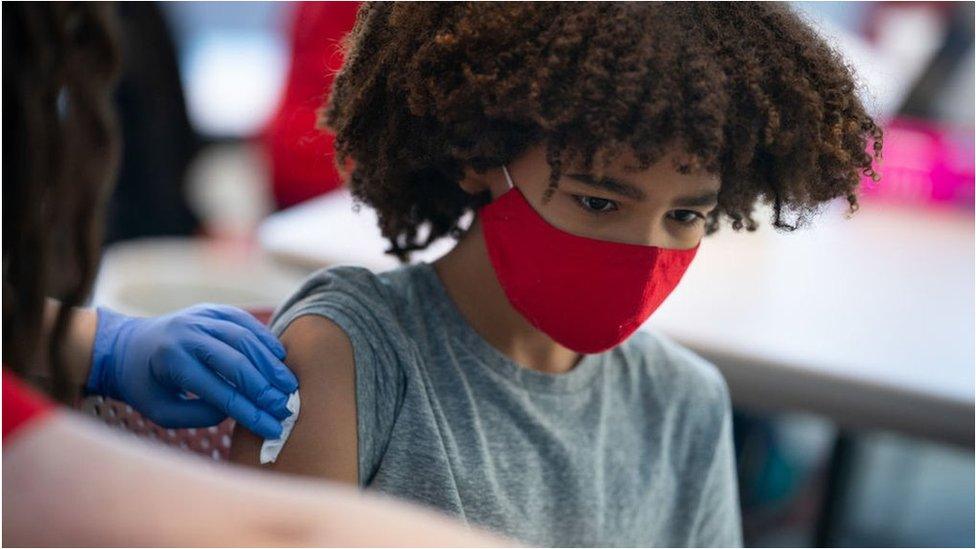Scientists not backing Covid jabs for 12 to 15-year-olds
- Published

The UK's vaccine advisory body has refused to give the green light to vaccinating healthy children aged 12-15 years on health grounds alone.
The JCVI said children were at such a low risk from the virus that jabs would offer only a marginal benefit.
The UK's four chief medical officers have now been asked to have the final say, and to consider the wider impact on schools and society.
Health Secretary Sajid Javid said a decision would be made shortly.
The Joint Committee on Vaccination and Immunisation did advise widening the existing vaccine programme to include an extra 200,000 teenagers with specific underlying conditions.
Doctors identified that children with chronic heart, lung and liver conditions were at much higher risk of Covid than healthy children.
'Insufficient evidence'
The decision not to recommend the vaccine to all healthy children was based on concern over an extremely rare side effect of the Pfizer and Moderna vaccines which causes heart inflammation, and can lead to palpitations and chest pain.
Data from the US, where millions of young teenagers have been vaccinated, suggests there are 60 cases of the heart condition for every million second doses given to 12 to 17-year-old boys (compared to eight in one million girls).
France, Italy, Israel and Ireland are also offering the vaccine to all children in this age group.
But as children are at such low risk from the virus, the JCVI decided that vaccination would offer only "marginal gain" and, therefore, there was "insufficient" evidence to offer mass vaccination to this age group.
The JCVI said it was difficult to factor in long Covid in its advice because of the uncertainty over how common it is in children, although it appears to be less prevalent than in adults.

The vaccine advisers have been under huge pressure.
Ministers have let it be known they are very keen on getting this age group vaccinated - both through their public pronouncements and privately behind the scenes.
This has caused frustration among JCVI members - with some complaining about the habit of government officials sitting in on meetings.
Despite this, the JCVI has stood firm. Taking into account the impact on school disruption might make a difference.
But even then it's not clear-cut. Vaccinating kids will cause disruption in itself, with children having to leave class to get jabbed and then maybe needing time off to recover from the common side effects, such as fever.
Another argument put forward is that it could help reduce the wider spread of the virus - although encouraging the 6 million adults who have not even taken up the offer a jab yet could arguably make more of a difference.
Clearly though it would have some impact - although the emergence of the Delta variant means the vaccines offer less protection against infection than they did previously.
What's more, around half of children in this age group are thought to have had Covid, providing them with natural immunity anyway.
The judgement call remains very tough.

Prof Wei Shen Lim, chairman of Covid immunisation for the JCVI said it was "taking a precautionary approach".
"The margin of benefit is considered too small to support universal Covid-19 vaccination for this age group at this time.
"The committee will continue to review safety data as they emerge," he added.
Paediatricians say that healthy children with Covid end up in intensive care at a rate of two in one million, but this rises to 100 in one million for children with certain health problems.
As a result, the JCVI's advice is that a larger group of at-risk children aged 12 to 15 should be offered a vaccine.
They include children with the following conditions:
blood cancers
sickle cell disease
type 1 diabetes
congenital heart disease
Children with poorly-controlled asthma and other respiratory conditions which can result in severe illness from Covid should also be offered the vaccine, the JCVI said.
A group of 150,000 children with conditions such as severe neurodisabilities, Down's syndrome and severely weakened immune systems as well as those living with vulnerable adults are already eligible.
There are three million children in total in this age group across the UK.
Further advice sought
Mr Javid said he had written to the chief medical officers in the UK's four nations to ask them to consider the vaccination of all 12-15 year olds "from a broader perspective".
They will look at the effects of Covid on children's education and pupil absences from school, which the JCVI is not qualified to consider.
Senior leaders in clinical and public health will be involved in the discussions and help to inform a final decision on a rollout to all 12-15 year olds.
"We will then consider the advice, building on the advice from the JCVI, before making a decision shortly," Mr Javid said.
On Friday, 42,076 cases of coronavirus were reported in the UK, external and 121 deaths within 28 days of a positive test.

What questions do you have about the decision not to recommend vaccination for healthy children aged 12-15 years on health grounds?
In some cases your question will be published, displaying your name, age and location as you provide it, unless you state otherwise. Your contact details will never be published. Please ensure you have read our terms & conditions and privacy policy.
Use this form to ask your question:
If you are reading this page and can't see the form you will need to visit the mobile version of the BBC website to submit your question or send them via email to YourQuestions@bbc.co.uk, external. Please include your name, age and location with any question you send in.
Related topics
- Published2 September 2021
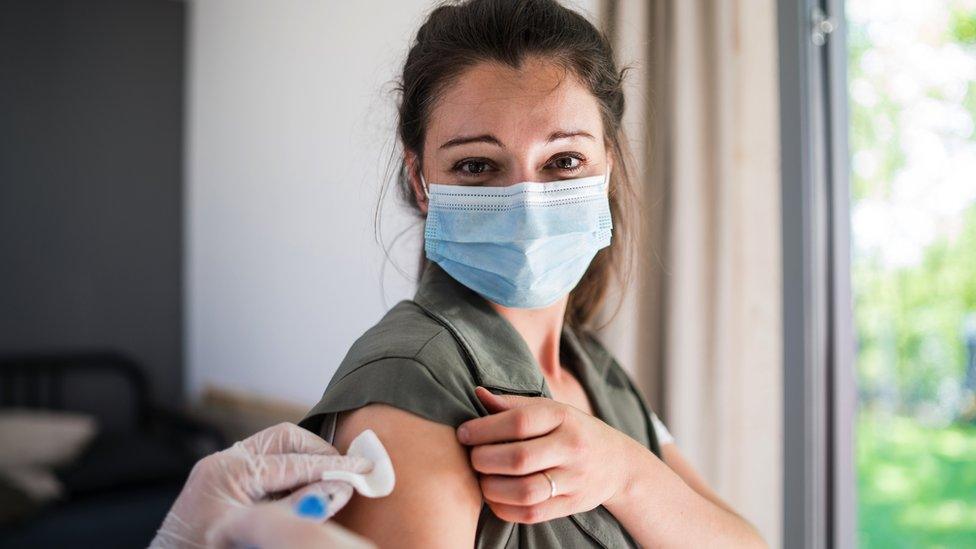
- Published1 September 2021
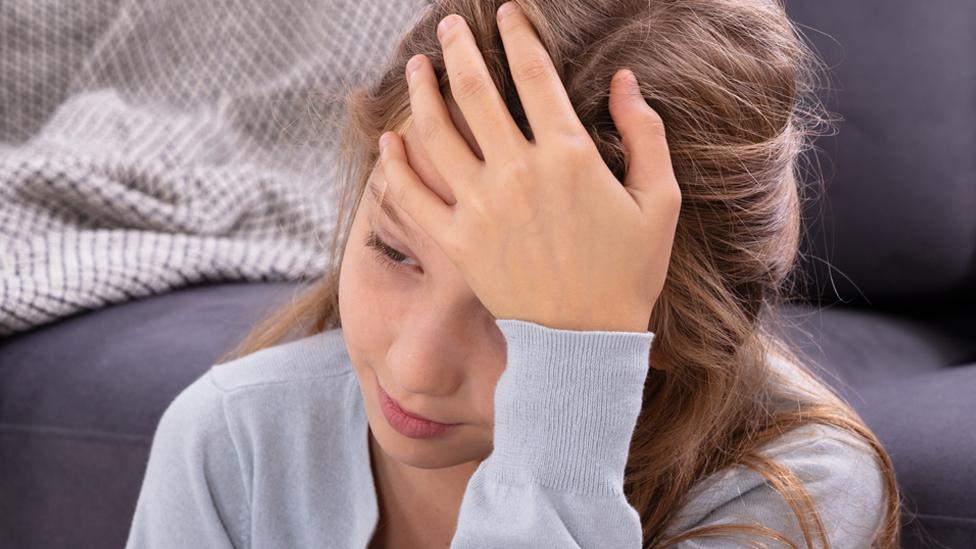
- Published2 April

- Published2 September 2021
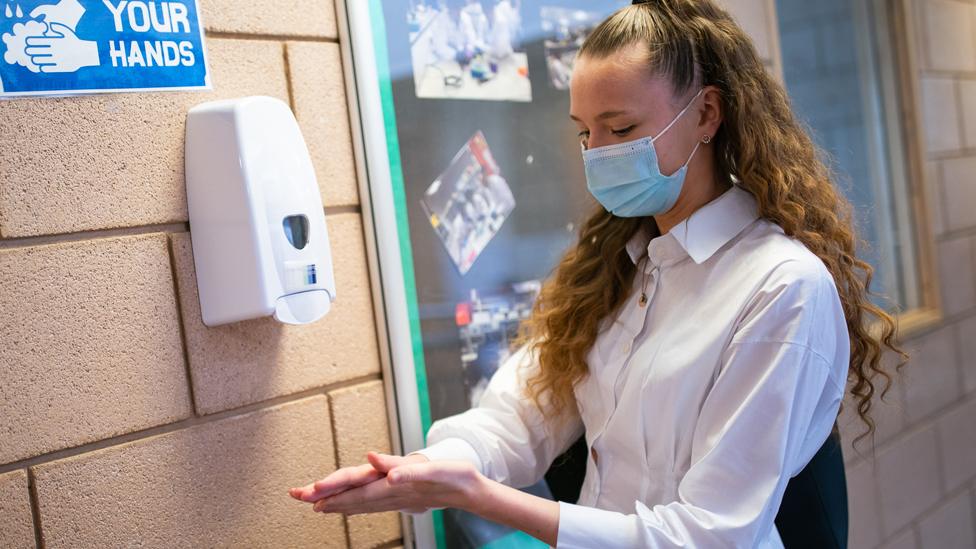
- Published9 July 2021
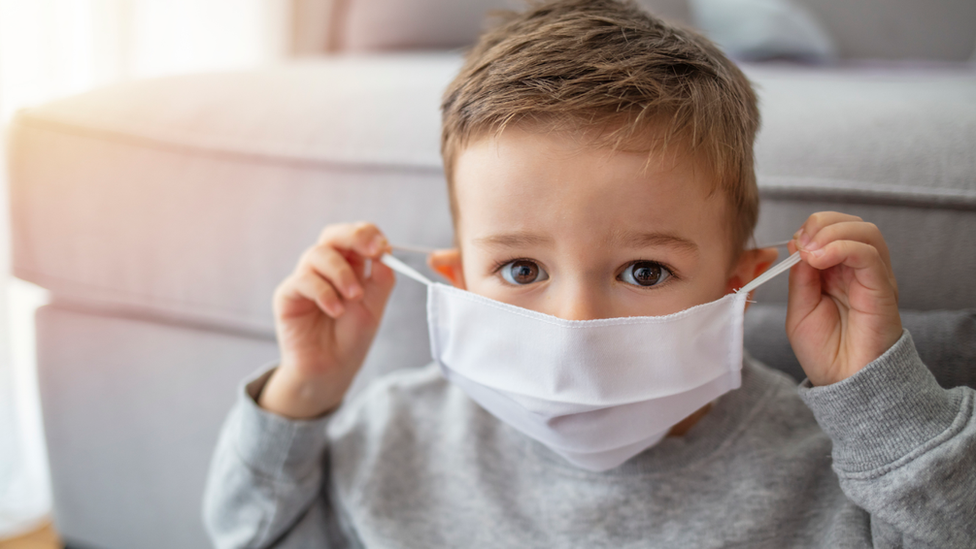
- Published1 June 2022
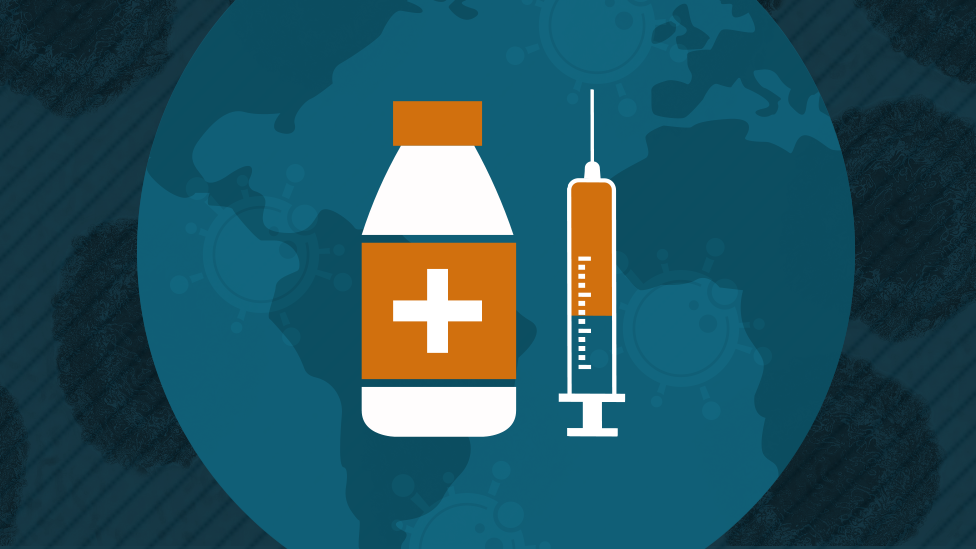
- Published4 June 2021
